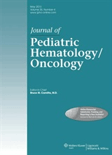
JOURNAL OF PEDIATRIC HEMATOLOGY ONCOLOGY
Scope & Guideline
Bridging research and practice in pediatric hematology and oncology.
Introduction
Aims and Scopes
- Pediatric Hematology:
Research related to blood disorders in children, including conditions like hemophilia, sickle cell disease, and various anemias. - Pediatric Oncology:
Studies on cancers affecting children, including leukemia, lymphoma, and solid tumors, emphasizing novel treatment approaches and outcomes. - Transplantation and Cell Therapy:
Exploration of hematopoietic stem cell transplantation and its implications for treating various pediatric malignancies and hematological disorders. - Clinical Trials and Therapeutics:
Reports on clinical trials, treatment protocols, and innovative therapeutic strategies aimed at improving survival and quality of life for pediatric patients. - Long-term Outcomes and Survivorship:
Research focused on the long-term effects of treatments on pediatric cancer survivors, including psychosocial aspects and late effects of therapies. - Genetic and Molecular Studies:
Investigations into the genetic and molecular underpinnings of pediatric hematological and oncological diseases to inform targeted therapies. - Nutrition and Supportive Care:
Studies addressing the nutritional needs and supportive care strategies for children undergoing treatment for hematological and oncological disorders. - Public Health and Policy:
Research examining the implications of public health policies on pediatric hematology and oncology practices, including access to care and preventive measures.
Trending and Emerging
- Immunotherapy and Targeted Treatments:
There is a significant increase in research related to immunotherapy, including CAR T-cell therapy and targeted agents, reflecting a shift towards precision medicine in pediatric oncology. - Long-term Survivorship Research:
Emerging studies on the long-term health outcomes of pediatric cancer survivors are gaining prominence, highlighting the importance of monitoring and addressing late effects of treatment. - Psychosocial Impact of Cancer and Treatment:
Research focusing on the psychosocial aspects of pediatric cancer treatment, including mental health and quality of life, is increasingly common, emphasizing holistic care. - Genomic and Molecular Profiling:
There is a growing emphasis on genomic studies and molecular profiling of tumors to guide treatment decisions, reflecting advancements in personalized medicine. - Telemedicine and Remote Care:
The integration of telemedicine in pediatric hematology and oncology has become a prominent theme, especially in light of the COVID-19 pandemic, addressing access and continuity of care. - Nutrition and Supportive Care Innovations:
Emerging research on nutritional interventions and supportive care strategies that enhance treatment tolerability and patient outcomes is increasingly featured. - Health Disparities and Access to Care Research:
There is a rising focus on health disparities, access to care, and the impact of socioeconomic factors on pediatric cancer treatment and outcomes. - Vaccine Research and Infectious Disease Management:
Studies exploring vaccine efficacy, particularly in immunocompromised pediatric populations, and the management of infectious diseases during cancer treatment are trending.
Declining or Waning
- Traditional Chemotherapy Studies:
There seems to be a decline in studies solely focused on traditional chemotherapy regimens, as the field shifts towards targeted therapies and immunotherapies. - Basic Science Without Clinical Application:
Research that does not translate into clinical practice or lacks direct implications for patient care appears less frequently, as the journal emphasizes translational research. - Single-center Studies:
There is a noticeable reduction in the number of single-center studies, likely due to a growing emphasis on multicenter collaborations that provide broader insights into pediatric care. - Historical Reviews:
The journal has moved away from publishing extensive historical reviews of treatments and practices, focusing instead on contemporary research and future directions.
Similar Journals
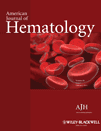
AMERICAN JOURNAL OF HEMATOLOGY
Championing Excellence in Hematology ResearchAmerican Journal of Hematology, published by Wiley, stands as a premier outlet for the dissemination of cutting-edge research in the field of hematology. With a commendable impact factor and ranked #9 out of 137 in the Scopus medicine category, this journal has established a robust presence since its inception in 1976. Operating in the Q1 quartile for hematology, it serves as a crucial resource for researchers, clinicians, and students dedicated to understanding blood disorders and advancing treatment methodologies. While the journal does not currently offer open access options, it remains highly regarded for its rigorous peer-review process and impactful contributions to the scientific community. With coverage extending into 2024, the American Journal of Hematology is committed to fostering innovation and collaboration within the hematological sciences.

Journal of Hematology
Connecting Scholars, Enhancing PracticeThe Journal of Hematology, published by ELMER PRESS INC, serves as a pivotal platform for disseminating cutting-edge research in the field of hematology. With an ISSN of 1927-1212 and an E-ISSN of 1927-1220, this journal is committed to advancing scientific knowledge and clinical practice through high-quality peer-reviewed articles encompassing all aspects of blood disorders, from basic science to health policy implications. While the journal currently operates under a traditional access model, it nonetheless prioritizes the rapid publication of significant findings, ensuring that researchers, clinicians, and students have timely access to the latest advancements in hematological research. Positioned to bridge gaps in knowledge and foster collaboration among scholars worldwide, the Journal of Hematology is an essential resource for anyone invested in this vital area of medicine.

Cancers
Empowering discovery in oncology and cancer treatment.Cancers is a leading peer-reviewed journal published by MDPI, dedicated to advancing the field of oncology and cancer research. Established in 2009 and based in Switzerland, this Open Access journal provides a platform for the rapid dissemination of high-quality research findings, reviews, and clinical studies related to all aspects of cancer biology and treatment. With an impressive impact factor and recognized as Q1 in Oncology and Q2 in Cancer Research for 2023, Cancers strives to foster a collaborative environment among researchers, healthcare professionals, and students seeking to deepen their knowledge and understanding of cancer. The journal’s commitment to accessibility and its broad scope make it an invaluable resource for anyone passionate about combating cancer and improving patient outcomes. For more information and to access its diverse publications, visit the journal’s website.
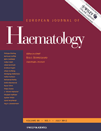
EUROPEAN JOURNAL OF HAEMATOLOGY
Advancing Hematology Research for a Healthier TomorrowEUROPEAN JOURNAL OF HAEMATOLOGY, published by Wiley, serves as a vital resource for experts in the field of hematology, focusing on the latest advancements in blood disorders and therapies. With an ISSN of 0902-4441 and an E-ISSN of 1600-0609, this esteemed journal has been disseminating knowledge since 1986 and continues to thrive, converging its visionary approach through to 2024. Notably, it holds a distinguished Q2 ranking in Hematology and an impressive Q1 ranking in the broader category of Medicine (miscellaneous) as of 2023, highlighting its significant contribution to the scientific community. With a Scopus rank of #45/137 and a 67th percentile in the field, the journal is recognized for its rigorous peer-reviewed research, making it an indispensable publication for researchers, practitioners, and students aiming to stay at the forefront of hematological studies. Though not an open-access journal, it ensures broad accessibility to critical findings via its subscription model, thus fostering an informed and globally engaged audience.

Journal of Blood Medicine
Empowering Research: Your Gateway to Innovations in HematologyThe Journal of Blood Medicine, published by DOVE MEDICAL PRESS LTD, stands as a vital resource in the field of hematology, focusing on the latest research developments and clinical advancements in blood medicine. With an impact factor reflective of its growing relevance, this open-access journal has been delivering quality scholarly work since 2010, ensuring that critical research is readily available to the global scientific community. The journal operates under an open-access model, further enhancing its dissemination and accessibility to researchers, professionals, and students alike. In the 2023 rankings, it secured a Q3 category status within hematology and achieved a commendable 76th rank out of 137 in Scopus listings, indicating its commitment to quality and innovation in this specialized area. Located in New Zealand, the journal's diverse topics encompass clinical research, treatment modalities, and emerging therapies, contributing significant insights vital for shaping future advancements in blood medicine.
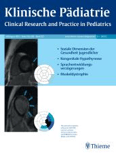
KLINISCHE PADIATRIE
Elevating Child Health Knowledge for ProfessionalsKLINISCHE PADIATRIE is a prominent academic journal published by GEORG THIEME VERLAG KG since its inception in 1972. Based in Germany, this journal serves as a valuable resource for professionals and researchers in the fields of Pediatrics, Perinatology, and Child Health. With an ISSN of 0300-8630 and E-ISSN 1439-3824, it features a rich array of peer-reviewed articles that focus on child health and development, encompassing clinical practices, therapeutic advances, and interdisciplinary approaches to pediatric care. While the journal operates on a subscription basis, its impact within the academic community is evidenced by its ranking of Q3 in Pediatrics, Perinatology, and Child Health as of 2023, and it maintains a solid standing within Q4 in Medicine (miscellaneous). The journal aims to bridge the gap between emerging research and clinical practice, providing a platform for innovative ideas that enhance pediatric care. Researchers, medical professionals, and students alike will find KLINISCHE PADIATRIE an essential addition to their academic repertoire, fostering advancements in pediatric healthcare and enriching knowledge in this vital field.

INTERNATIONAL JOURNAL OF HEMATOLOGY
Championing Excellence in Hematology ResearchThe INTERNATIONAL JOURNAL OF HEMATOLOGY, published by SPRINGER JAPAN KK, serves as a critical platform for advancing research in the field of hematology. With a prestigious history spanning over three decades from 1991 to 2024, this journal is recognized for its impactful contributions, evidenced by its Q2 category ranking in Hematology for 2023, and its notable position at rank #71 out of 137 in the Scopus Medicine Hematology category. Researchers and professionals within the hematology community benefit from the journal's rigorous peer-reviewed articles that cover a wide range of topics, including clinical studies, basic research, and novel therapeutic strategies. Though currently non-open access, it provides essential insights and findings to an audience passionate about the latest advancements in blood disorders and treatments. Situated in Japan, the journal not only showcases high-quality research but also fosters a global exchange of knowledge in hematology, making it a significant resource for scholars, practitioners, and students alike.

HemaSphere
Unveiling the latest in hematologic breakthroughs.HemaSphere, published by WILEY, stands at the forefront of hematology research, offering a vital platform for the dissemination of cutting-edge findings in the field. Since its inception in 2017 and official transition to Open Access in 2018, the journal has positioned itself as a leading conduit for high-impact research, maintaining a prestigious Q1 quartile ranking in the Hematology category as of 2023. Addressed in the United States at 111 River St, Hoboken, NJ, HemaSphere aims to foster a global dialogue among researchers, clinicians, and students by providing unrestricted access to high-quality content that encompasses clinical and experimental advancements. With an array of engaging articles, reviews, and commentaries, HemaSphere contributes significantly to the advancement of hematology, ensuring that critical knowledge is readily accessible to enhance patient care and innovative research. To explore the latest developments and breakthroughs in this dynamic field, we invite scholars, professionals, and students to engage with HemaSphere and elevate their understanding of hematologic science.
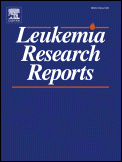
Leukemia Research Reports
Empowering breakthroughs in hematology and oncology.Leukemia Research Reports, published by Elsevier Advanced Technology, is a prominent open-access journal dedicated to the latest advancements in the field of hematology and oncology. Since its launch in 2012, this journal has been a vital resource for researchers, healthcare professionals, and students aiming to disseminate and access high-quality research articles focused on various aspects of leukemia and related blood disorders. With an impact factor indicative of its significance in the field, Leukemia Research Reports currently holds a Q3 quartile ranking in both Hematology and Oncology, and is included in key databases such as Scopus. The journal not only embraces a commitment to open access, ensuring that research is freely available, but also actively promotes collaborations that strive to enhance our understanding and treatment of leukemia. Based in the United Kingdom, this journal continues to play a crucial role in fostering innovation and knowledge sharing within the medical community.

Blood and Lymphatic Cancer-Targets and Therapy
Exploring New Horizons in Cancer TherapyBlood and Lymphatic Cancer-Targets and Therapy, published by DOVE MEDICAL PRESS LTD, is a vital open-access journal that has been disseminating crucial research and findings in the field of hematology and oncology since 2011. With its ISSN 1179-9889, this journal focuses on the latest therapeutic targets and innovative treatment strategies for blood and lymphatic cancers, contributing significantly to the advancement of knowledge and practice in this specialized area. Designed for researchers, healthcare professionals, and students alike, Blood and Lymphatic Cancer-Targets and Therapy aims to foster a deeper understanding of cancer biology and promote collaborative efforts leading to novel therapeutic interventions. The open-access model ensures that research findings are readily accessible to a global audience, underscoring the journal's commitment to enhancing patient care and fostering educational growth in the cancer domain.